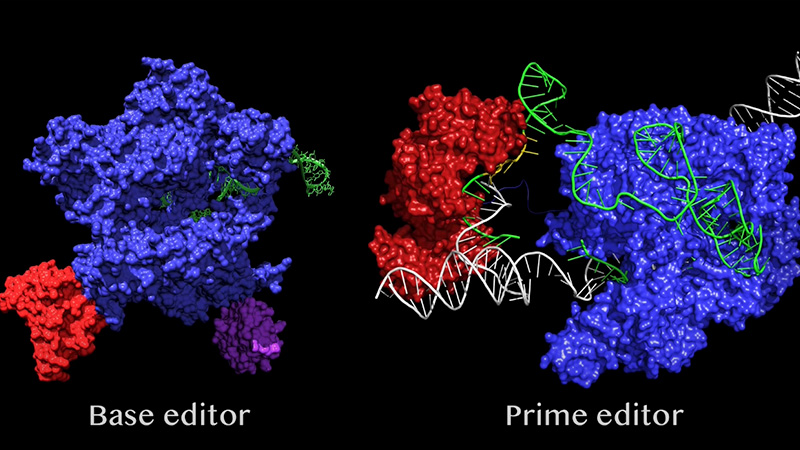Prime Editing
Ready for Prime Time
Prime editing, along with base editing, are two technologies created by David Liu that have generated great excitement in the research community. Whereas base editing corrects mutations caused by a typo in a single nucleotide base (a point mutation), prime editing can correct multiple mutations that are close to one another within the gene. As this technology evolves to correct larger spans of DNA, it will be able to edit all mutations in MECP2.
Prime editing combines elements of both CRISPR-Cas9 and base editing to enable targeted changes to be made to the DNA sequence. It offers several advantages over traditional genome editing methods including greater precision, versatility (different types of edits), and reduced off-target effects.
Erik Sontheimer, PhD
Jonathan Watts, PhD
Scot Wolfe, PhD
UMASS Chan Medical School
Researchers Erik Sontheimer, PhD, Jonathan Watts, PhD and Scot Wolfe, PhD, are among the world’s leaders in knowledge of RNA chemistry. UMASS has played a historic role in this space for years; in 2006 Dr. Craig Mello, PhD, was awarded the Nobel Prize for his work in RNA silencing.
UMASS, and this group in particular, also have expertise in the now universally used DNA editing machinery CRISPR-Cas9. Dr. Sontheimer co-founded and launched one of the very first CRISPR companies, Intellia.
This powerhouse collaboration brings diverse and synergistic skills attacking editing from multiple directions.




